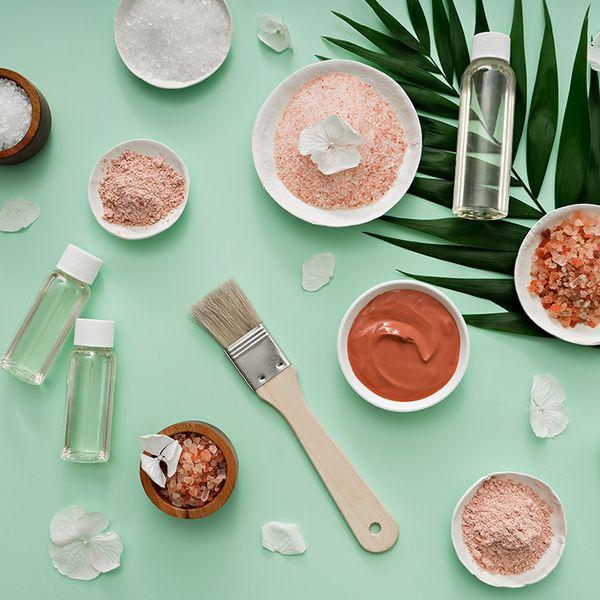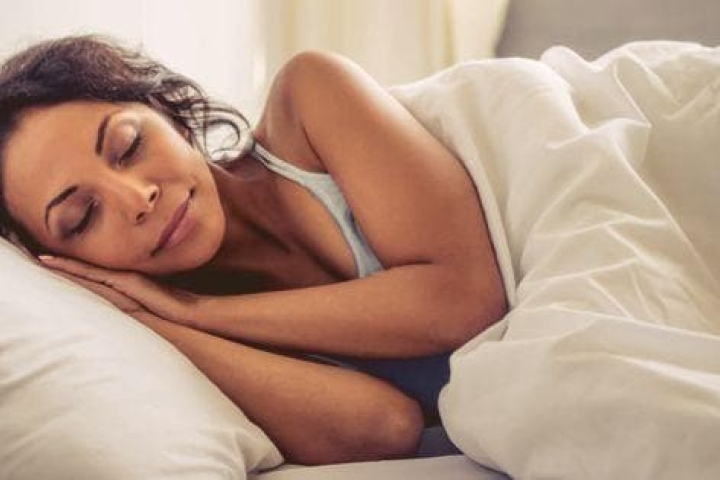A Complete Beginners Guide to Essential Oils
Your Complete Beginner's Guide to Essential Oils
Essential oils have been used for years for a wide variety of purposes, from promoting general health and wellbeing, to creating a more peaceful atmosphere through aromatherapy.
In this beginner's guide, we'll show you everything you need to know to begin using essential oils like a pro!
What is Aromatherapy?
Before we dive into all the exciting ways essential oils can be used for aromatherapy, let's begin with a basic explanation of what it's all about.
Aromatherapy is a well-established practice of using volatile plant oils, also referred to as "essential" oils, to support overall health and wellbeing.
Aromatherapy uses these natural oils extracted from flowers, seeds, leaves, roots, fruit and twigs for specific reasons.
These oils are then formulated to work in harmony with the body and may also offer benefits to your overall wellbeing.
Derived from these parts of plants and trees, essential oils possess a complex nature that is difficult to reproduce artificially.
In fact, some oils contain substances that don’t occur anywhere else naturally.
Aromatherapy is often used to promote relaxation and help relieve stress. It's also been used to promote sleep,1 support overall health and wellness and it may even help support healthy blood pressure that's already within the normal range.2
The History of Aromatherapy
Essential oils have been used for thousands of years as stimulants, sedatives and even for traditional or religious purposes.3
It's part of the holistic healing spectrum that, in addition to essential oils, also utilizes other natural ingredients like vegetable oils, jojoba (a liquid wax), herbs, sea salts, clays and even muds.
Aromatherapists apply certain oils directly to the skin via massages, but they also use the oils to freshen the air of their living spaces by using sprays or essential oil diffusers.
Historically, aromatherapy practitioners have believed that the scents produced by specific essential oils stimulated certain nerves within the olfactory system in ways which had a positive effect on the mind, such as by supporting memory or even boosting one's mood.4
Health Benefits of Aromatherapy
Take a whiff of the air around you. What do you smell? Are you immediately put in a good mood with the smell of fresh cut flowers?
Or do you suddenly crave some pie with the smell of baked apples and cinnamon wafting through the halls?
Hopefully you don't feel like gagging after being blasted with exhaust from a passing bus!
It’s easy to see how our olfactory system (sense of smell) can impact our feelings. The sense of smell is incredibly powerful.
In fact, your nose can distinguish between more than 1 trillion different scents!5
But, aromatherapy isn’t just about appealing smells; it also offers many potential health benefits, including the following:
- Supporting relaxation and stress relief1
- Aiding mood1 and well being
- Supporting your immune system6 and circulatory health2
Aromatherapy can be a great health practice in a variety of situations.
To find out which scents may help you, find an aromatherapy book at your local library or do some online searching to find out about popular essential oils.
You can even get recipes for mixing your own rejuvenating scents!
Blending Essential Oils
Different oils can be blended together to achieve a synergy. This means that the respective powers of the oils change to enhance their energy.
When a level of power has been reached, you achieve a synergy. Recipes for blending need to be followed exactly and the oils should be left to age for at least a week before adding them to carrier oils.
Essential Oil Dilution
Once you have chosen your essential oil, you can add it to base products to enhance your favorite health and beauty items.
To dilute essential oils, simply add them to unscented bath oils, hand and body lotions, massage lotions and shower gels.
- Massage – five drops per tsp of base oil or lotion
- Inhalation – one or two drops in boiling water or on a tissue
- Bath – Up to six drops in ¼ cup carrier oil (we like jojoba oil), then add eight to 10 drops of blended oils to bath water
- Sauna – two drops to 2 ½ cups water
- Facial – two or three drops in base product
- Foot Bath – eight drops in bowl of water
- Cleanser – 20 drops in 4 oz of base product
- Body – five to 15 drops in base product
- Chest Rub – 10 to 20 drops to 1 oz of carrier oil
- Laundry Wash – 10 to 20 drops per load
- Vacuum Cleaner – five to 10 drops
- Auto Vent Outlet – two or three drops
- Artificial Holiday Tree – 10 to 15 drops in 8 oz of water
Common Carrier Oils for Essential Oils
The healing scent of an essential oil can evaporate quickly, so they are often combined with a carrier oil.
Carrier oils usually come from the fatty portion of a plant and help the essential oil's scent last for a longer period of time.
- Almond Oil
- Jojoba Oil
- Olive Oil
- Grapeseed Oil
- Avocado Oil
- Coconut Oil
How to Use Essential Oils
There are a ton of different ways to use essential oils. Below we've included actual customer reviews on how they've used essential oils for their own purposes.
Each one of these fantastic suggestions was submitted to us by one of our Facebook fans.
- "I make my own laundry detergent and use them to scent it!" –Keri L.
- "I love to use essential oils to make my own 'salt scrub' with almond oil. Makes skin feel so soft!" –Sandi N.
- "I love to use essential oils to refresh furniture. I mix a spray bottle with half hot water, half vinegar, drop fresh cut lemons in along with Lavender and Clove essential oils....amazing!!!" –Bobbi A.
- "I use essential oils to make mouthwash, in lotion for skin, in bath water and on the steam radiator so when it heats up, the whole house smells good as well." –Timothy S.
- "I use it with vinegar for a great laundry softener!" –Megan L.
- "I make my own toothpowder: 1/2 Himalayan sea salt and 1/2 baking soda mixed in my coffee grinder, then Peppermint Essential Oil to taste. I have used it for years and it's wonderful!" –Kathy W.
- "I put a few drops of lavender oil on a folded handkerchief and keep it in my pillowcase for a calming bedtime aroma." –Kaichita M.
- "Instead of buying expensive cleaning sprays, I put some Pine Needle essential oil in a large spray bottle and fill with water. I use it to clean the kitchen, bathroom sinks, etc. Any place that you would use a spray cleaner. I even spray my floors with it before I mop. It cleans great and smells wonderful!" –Lynn L.
- "I dab some on cotton balls and add them to my vacuum. I use them in the humidifier water and on the furnace filter." –Sue M.
- "Add it to my homemade laundry detergent." –Peggy B.
- "I use lavender in a diffuser to put a pleasant scent in the house." –Karen F.
- "I put an essential oil of my choice in organic coconut oil and brush my teeth with it!" –Carol L.
- "Spray the car interior with lavender oil in alcohol." –Barbara B.
- "I put a few drops in organic coconut oil and rub all over my skin after a shower." –Diane C.
- "Home-made air sprays, face creams and cosmetics." –Joyce O.
- "Any of the oils to get stickers off books. They slip right off." –Mary K.
- "Inhale tea tree oil scent mixed in a boiling pot of water." – Susan M.
- "Citronella on tops of my shoes when cutting the grass. Not one bit me this summer, and normally bugs love me!" – Carol F.
- "Love the aroma of any of the floral scents mixed with jojoba oil used as a perfume." – Marcia W.
- "Peppermint oil will keep mice out of your car engine and storage building." – Fred K.
- "I will be using essential oils for insect repellant for indoor, outdoor, & personal use." – Lisa G.
- "If you have a problem with ants coming into your house, apply Lemon Essential Oil. It works every time." – J.H.
What are Some Benefits of Essential Oils?
Essential oils are the fragrant, concentrated liquids extracted from the flowers, leaves, roots, bark and fruit of aromatic plants. Essential oils are often the main ingredients in aromatherapy products.
There are many essential oils ranging from spices and herbs to fruit extracts and florals. Each oil has a unique scent and properties that can be applied for many different uses.
Here are some popular essential oils and the common uses and benefits for them:
- Eucalyptus is purifying and invigorating, and often used in topical preparations
- Ginger can be used to stimulate the appetite
- Juniper Berry is associated with restoring and supporting benefits, and comes from the berry of the juniper tree
- Lavender is used in baths, sprays, lotions, oils





Leave a comment